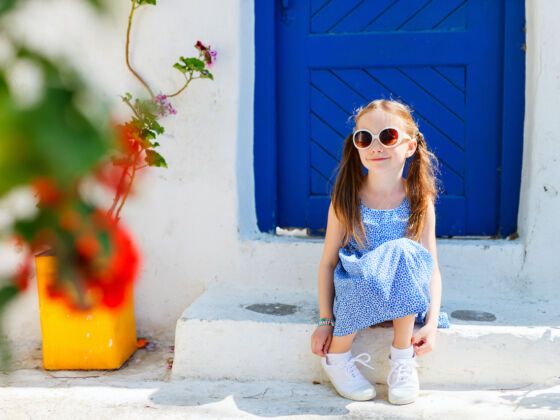1. Mealtimes are to be respected.
Greek parents insist on their children eating as much as possible, and maintain that if kids leave even one morsel of food on the plate, “αφἠνουν την δυναμἠ τους,” they are “leaving their strength behind.” Parents also teach their children that mealtimes are almost always a social event with the whole family and plenty of conversation. Even if Greek kids are out all day, it is normal for them to tell their friends they are going back home for dinner and will be back out later.
